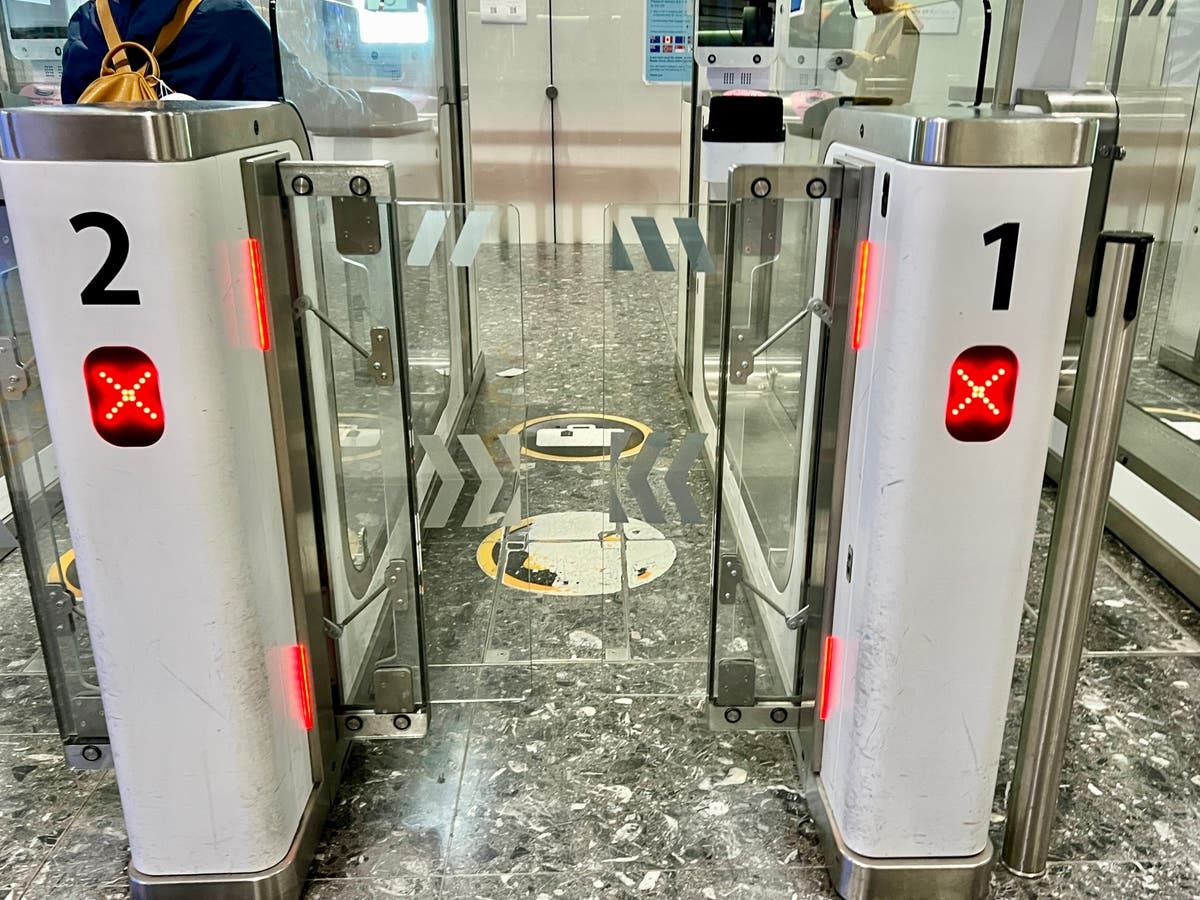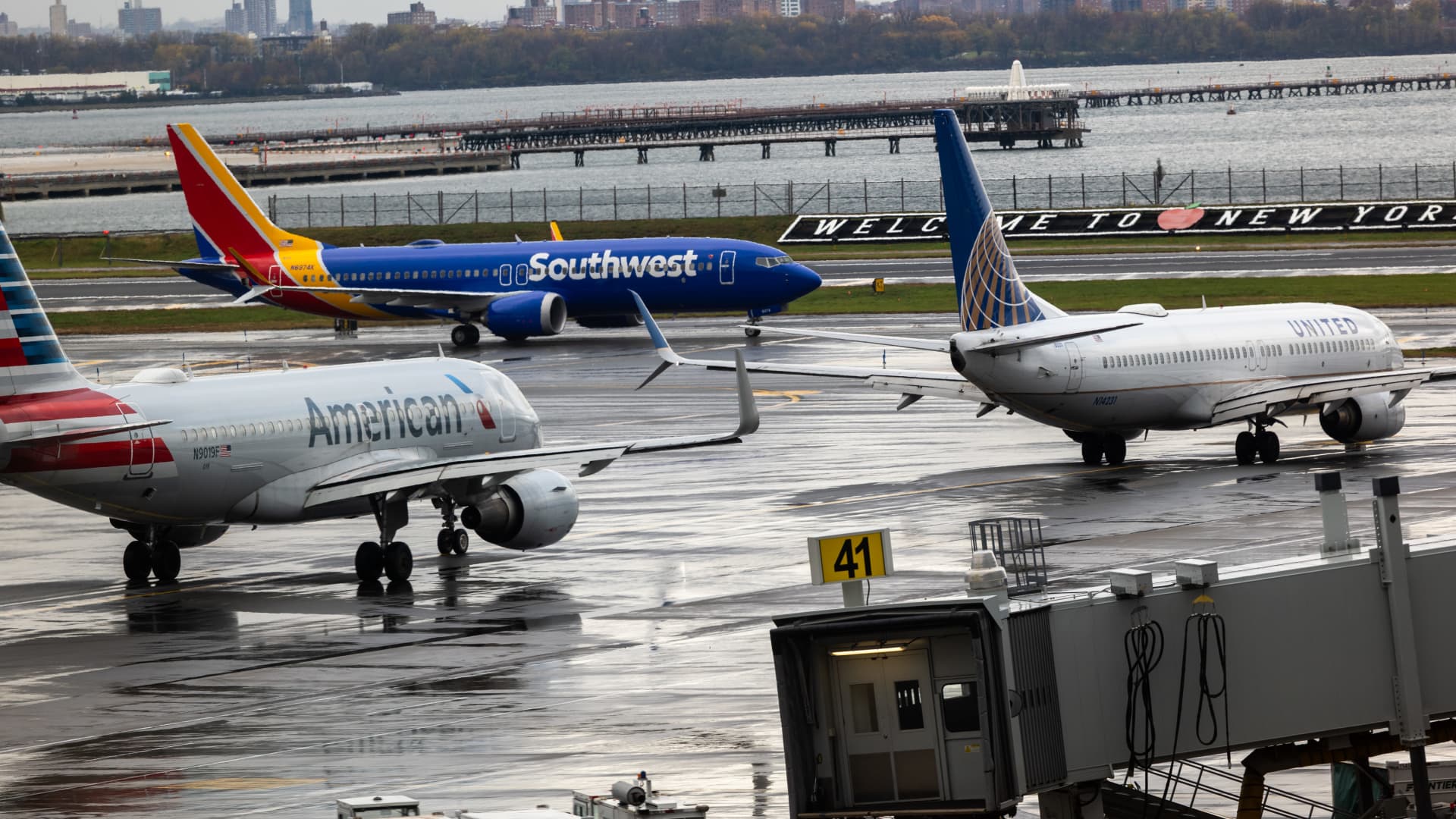Your support helps us tell the story.
As your White House correspondent, I ask the tough questions and seek the answers that matter.
Your support allows me to be in the room, pushing for transparency and accountability. Without your contributions, we would not have the resources to challenge those in power.
Your donation allows us to continue doing this important work, keeping you informed every step of the way to the November election.
Andrew Feinberg
White House Correspondent
The UK's new Electronic Travel Authorisation (ETA) system will apply to the vast majority of arrivals from abroad, even those simply changing planes, from 2 April 2025.
The new government says: “Everyone who wants to travel to the UK, except British and Irish citizens, will need permission to travel before coming here. This can be done through an Electronic Travel Authorisation or an eVisa.”
The ETA costs £10 and is valid for multiple entries to the UK over the course of two years or until the traveller's passport expires, whichever comes first; the eVisa is used by a minority of travellers who do not qualify for 'visa-free' status.
Ministers say the scheme's implementation worldwide will “prevent abuse of our immigration system”.
An ETA will be required even for those who are on the “airside” of Heathrow for a short period between international flights.
For British travellers, there is not expected to be a direct impact, but figures from the travel industry suggest that the rules associated with the ETA will hurt airlines and UK tourism.
These are the key questions and answers.
What is planned?
Most visitors to the UK do not need to go through the complex and costly process of applying for a UK visa; they simply present their passport and request entry.
But that is all changing with the new online permit. The Electronic Travel Authorisation will be mandatory for all overseas visitors who do not need a visa to travel to the UK, except Irish citizens, who are allowed free movement under the Common Travel Arrangement.
The point of departure of the trip to the United Kingdom is not relevant: what counts is the nationality of the traveler.
The ETA is loosely based on the US ESTA and is electronically linked to the traveller's passport. The cost is £10. The permit will be valid for repeat travel within two years or until the passport expires, whichever comes first.
When will it happen?
The scheme began to apply to Qatari citizens travelling to or through the UK on 15 November 2023. On 22 February 2024, the scheme was extended to citizens of Bahrain, Jordan, Kuwait, Oman, Saudi Arabia and the United Arab Emirates.
Non-Europeans will need permission to travel from 8 January 2025, and an ETA will be mandatory for arrivals in Europe from 2 April 2025.
How do travelers obtain an ETA?
Online via a UK government website or via the app (search for “UK ETA” in the Apple App Store or Google Play).
You must provide a photograph and answer a series of questions. The government says: “This will ensure we have information about those who wish to come to the UK, which will help prevent dangerous people, such as criminals, from entering the country.”
A decision on each case is usually expected within three days. In practice, similar systems in the United States, Canada and other countries grant approval more quickly.
Commercial sites designed to tempt applicants into paying extra fees have already appeared, such as etauk.uk, which is based in Spain and has no connection to the UK government.
Who will check the estimated time of arrival (ETA)?
For most travellers, airlines and ferry companies are expected to check ETA status before the passenger boards a flight or ship bound for the UK.
Ferries from France to Dover, Eurostar trains to London and Eurotunnel ferries to Folkestone have “juxtaposed checks” and UK Border Force staff will check the permit while the traveller is in mainland Europe.
On arrival, the UK Border Force will check the ETA and ask further questions before deciding whether or not to allow the traveller to enter. The government states: “An ETA does not guarantee entry to the UK.”
Non-Irish and non-UK travellers from the Republic of Ireland to Northern Ireland will not face any checks.
What happens to passengers in transit?
The UK government has decided to set itself apart by insisting that all travellers with a stopover must obtain an ETA. This will make London Heathrow a more complicated transit hub than major continental European competitors, as well as airports such as Istanbul and Dubai.
The almost global convention is that passengers connecting from one gate to another at a hub (without going through passport control) only need to meet the requirements for their final destination.
But when the ETA scheme comes into full force next April, all passengers except British and Irish nationals will need a permit, even if they are simply changing from one British Airways plane to another at Heathrow's Terminal 5, or connecting between Star Alliance airlines at the airport's Terminal 2.
Travel industry experts predict that overseas travellers who have a choice of routes will switch to other hubs to avoid extra costs and paperwork, hurting Heathrow and leading to a drop in customer numbers for British Airways and Virgin Atlantic.
About 30 percent of Heathrow passengers are in transit.
Paul Charles, director of The PC Agency and former communications director at Virgin Atlantic, said: “Charging transit is tantamount to failure. If other airports offer free transit, they will gain market share.
“Airports should be comfort zones that allow for hassle-free travel. This proposed tax should be eliminated.”
Rob Burgess, editor of frequent-flyer website Head for Points, says: “Why would anyone pay £40 for a family of four to get an ETA just so they can stop over in the UK on a trip from, say, the US to Croatia? Every other European airline will be laughing when they get their hands on this business.”
A Heathrow spokesman said: “We do not disagree with the long-term implementation of the scheme, but including transit passengers on the airside will make the UK less competitive and harm economic growth.
“We look forward to working in collaboration with Home Affairs Ministers over the coming months to address this issue and learn from the lessons of the countries assessed, where we have already seen the loss of significant numbers of transit passengers.”
What does the government say?
Migration and Citizenship Minister Seema Malhotra said: “Digitisation enables a seamless experience for the millions of people who pass through the border every year, including the visitors we warmly welcome to the UK who are predicted to contribute more than £32 billion to our tourism economy this year.
“ETA’s global expansion demonstrates our commitment to improving security through new technologies and the incorporation of a modern immigration system.”
The government’s online information on the new plan says: “Requiring those in transit to obtain an ETA will prevent public transport from being a loophole that people can use in the future to avoid the need for an ETA. This is in line with the US ESTA plan.”
If I change planes in the US, do I need a Visa?
There is one crucial difference: All passengers transiting through the United States must clear Customs and Border Protection and be legally admitted into the country. In theory, they could decide to stay in the United States for up to three months instead of transferring in Atlanta, Chicago or Houston.
This policy does not apply at Heathrow (or anywhere else in Europe) for international travel. UK Border Force will not screen passengers arriving at Heathrow if they are continuing their international journey.
Furthermore, few US airports rely on transit passengers for commercial purposes as Heathrow does.
In addition to the potential financial damage to airlines and Heathrow Airport, the government's decision could also affect British passengers. Some routes and frequencies are viable only because of the volume of connecting passengers. If services are cut, supply will be reduced and fares could rise.










